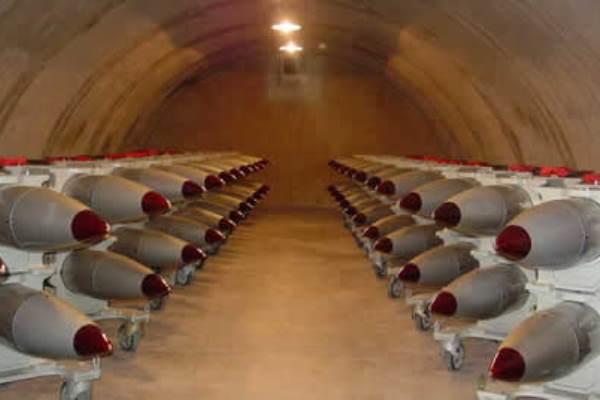The U.S. Defense Department drew up orders for the evacuation of military dependents from the Incirlik Air Base in Turkey as the attempted military coup got underway Friday night but abandoned them as the insurrection quickly collapsed, Pentagon Press Secretary Peter Cook said Monday.
While not confirming the presence of nuclear weapons at Incirlik, Cook also said steps had been taken to boost security for "special weapons" at the base shared with the Turkish Air Force to "keep everything safe, and we're going to continue to do that. As a matter of policy, we don't discuss strategic assets."
Arms control groups have long maintained that the U.S. stores nuclear weapons at Incirlik and other NATO bases in Europe. Last September, the Russian Foreign Ministry charged that the U.S. was upgrading B-61 nuclear bombs stored "not just in Germany, but also in Belgium, the Netherlands, Italy, and Turkey."
At the time, Navy Capt. Jeff Davis, a Pentagon spokesman, said at a briefing that the U.S. has long deployed nuclear weapons overseas but "we neither confirm nor deny their presence at any specific location."
At a Pentagon briefing, Cook said about 100 military dependents remain in Turkey following the evacuations last September of about 600 military families in the aftermath of the terror attacks on the Brussels airport and metro.
Cook also clarified the number of military personnel in Turkey, most of them at Incirlik with the 39th Air Base Wing. Previous estimates had put the number at 1,500 or 2,000, but he said there were currently more than 3,000 military personnel in Turkey.
Since the coup failed, there were no immediate plans now to evacuate the dependents, Cook said. "Force protection is job one for us and will continue to be, but we are confident that the measures we have in place and support we're receiving from the Turkish government" were adequate for the moment, he said.
Military personnel have long been restricted to base at Incirlik. Force Protection Level Delta, the military's highest, has been in effect there since the attempted coup. Delta level means that either a terrorist attack has just taken place in the immediate vicinity or "intelligence has been received that terrorist action against a specific location or person is imminent," according to military guidelines.
Flight operations against the Islamic State of Iraq and Syria were continuing out of Incirlik after a brief closure of the Turkish airspace by the Turkish military that was lifted Sunday, but commercial power to Incirlik was still cut off, Cook said. He said the base was operating off internal power from generators and "we will adjust accordingly" if the commercial power does not come back on soon.
Cook said that Defense Secretary Ashton Carter has not yet been in contact with his Turkish counterpart, Defense Minister Fikri Isik, since the attempted coup, and it was not clear whether Isik would be attending the meetings at Joint Base Andrews in Maryland on Wednesday of defense ministers from NATO allies and partners in the anti-ISIS coalition on the next steps in the campaign against the terror group. Turkish representatives were expected to attend.
-- Richard Sisk can be reached at Richard.Sisk@Military.com.






























